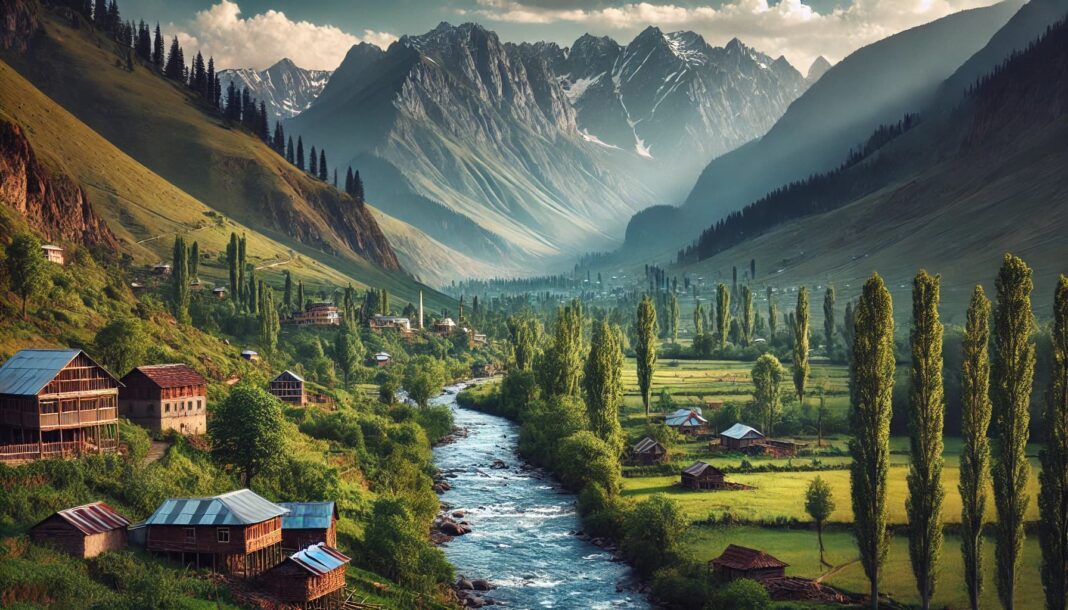Nestled in the heart of Jammu and Kashmir, Doda is a district that blends rich cultural heritage, breathtaking landscapes, and historical significance. Often overlooked by travelers in favor of more famous destinations, Doda offers an authentic experience of rural life, vibrant traditions, and natural beauty. In this blog post, we’ll take a deeper look at Doda, its unique features, its people, and why it deserves more attention.
What is Doda?
Doda is a district located in the Jammu region of Jammu and Kashmir. It is known for its scenic beauty, with lush green valleys, rivers, and towering mountains that surround the area. Doda is often referred to as a hidden gem, offering a peaceful escape from the hustle and bustle of city life. While the region has historically been less explored by tourists compared to other parts of Jammu and Kashmir, it is slowly gaining recognition for its unspoiled landscapes and rich cultural diversity.
The district is predominantly inhabited by locals from a variety of ethnic backgrounds, including Dogras, Gujjars, and Bakkarwals, each contributing to the region’s vibrant cultural fabric.
Geographical Beauty of Doda
Doda is part of the Chenab Valley, known for its stunning landscapes, fertile land, and diverse ecosystems. The Chenab River flows through the district, providing fertile soil for agriculture and beautiful natural views. The area is surrounded by dense forests, majestic mountains, and numerous streams, making it a paradise for nature lovers.
1. Majestic Mountains and Valleys
The district is home to some of the most beautiful mountain ranges in Jammu and Kashmir. These mountains are not just beautiful but also significant in the cultural and religious lives of the people. The valleys of Doda, such as Bhaderwah Valley, are known for their breathtaking scenery. Bhaderwah, often referred to as “Mini Kashmir,” is a popular spot within Doda, offering lush green meadows, serene lakes, and the perfect backdrop for trekking, camping, and other outdoor activities.
2. Waterfalls and Rivers
One of the lesser-known gems of Doda is its waterfalls. The Nalthi Waterfall and Chinta Valley are perfect spots to enjoy a peaceful retreat amidst nature. The water bodies of the region provide opportunities for adventure sports like fishing, boating, and white-water rafting, adding to the region’s allure for adventurers.
Cultural Significance of Doda
Doda has a rich cultural heritage that reflects the diversity of the region. The people of Doda celebrate numerous festivals, rituals, and customs that have been passed down through generations. The Dogri culture, which is the dominant culture in the region, is a blend of different influences from Hindu, Muslim, and local traditions.
1. Religious Diversity
The district of Doda is a melting pot of religions, with Hinduism, Islam, and Sikhism being the most prominent religions in the region. The famous Machi Mata Mandir, dedicated to the goddess Machi, is one of the important pilgrimage sites for Hindus. There are also several mosques and gurudwaras spread across the district, highlighting the religious harmony that exists within the region. The diversity of beliefs is also reflected in the vibrant festivals celebrated in the area, such as Diwali, Eid, and Gurpurab.
2. Traditional Arts and Crafts
Doda is known for its traditional art forms, including Dogri music, dance, and handicrafts. The Dogri language, spoken by the majority of the population, adds to the region’s unique cultural identity. You can find local artisans selling beautifully crafted woolen shawls, carpets, and handicrafts in the markets of Doda, making it a fantastic place for those interested in cultural souvenirs.
The People of Doda: Hospitality and Warmth
The people of Doda are known for their hospitality and warmth. Whether you’re visiting for a few days or planning a longer stay, the locals will always make you feel at home. Their way of life, rooted in agriculture and animal husbandry, makes them deeply connected to the land and nature. The community’s generosity and willingness to share their culture and stories with visitors create an atmosphere of friendliness that many travelers have experienced firsthand.
Doda’s Development and Economy
While Doda remains a relatively rural district, it has seen steady growth in recent years. The economy of Doda is largely based on agriculture, with locals growing crops such as wheat, rice, and maize, alongside fruits like apples and peaches. The district is also known for its livestock farming, especially sheep, which plays a key role in the economy.
In addition to agriculture, the tourism sector is slowly gaining importance, as more people discover the natural beauty and cultural richness of Doda. The government has started investing in infrastructure, such as roads and tourism facilities, to help boost local economies and improve accessibility.
Tourism in Doda
Despite being relatively underexplored by mainstream tourism, Doda has started to attract visitors looking for a more authentic and off-the-beaten-path experience in Jammu and Kashmir. As the state government continues to invest in infrastructure, Doda is becoming more accessible to tourists.
Some key tourist attractions in Doda include:
- Bhaderwah Valley: Often called “Mini Kashmir,” it offers stunning natural beauty, lush forests, and excellent trekking routes.
- Nalthi Waterfall: A serene waterfall offering a tranquil environment for nature lovers.
- Chinta Valley: A hidden gem perfect for hiking and enjoying picturesque landscapes.
- Machi Mata Temple: A revered Hindu temple that attracts pilgrims throughout the year.
Conclusion
Doda is an unpolished gem in the heart of Jammu and Kashmir. While the district remains somewhat off the radar compared to more well-known destinations in the region, its natural beauty, cultural diversity, and warm-hearted people make it an ideal place for those looking to experience the authentic side of India. Whether you’re an adventurer seeking hiking trails, a culture enthusiast interested in traditions, or someone simply looking for peace and solitude, Doda offers something special for everyone. Keep an eye on this hidden gem—it’s only a matter of time before it gains the recognition it truly deserves



